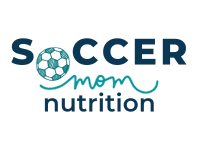Protein Shakes for Kid Athletes: Top Tips for Health, Performance, and Quality
Are you wondering about incorporating protein shakes into youth athletes’ diets to support their growth and performance. Protein shakes for kid athletes offer numerous benefits.
This includes muscle recovery and growth, but it’s crucial to ensure that you’re making the safest, highest-quality choices, and incorporating nutritious food-based protein boosts for your well-being.
In this post, we’ll walk you through crafting nutritious and tasty protein shakes while emphasizing safety, quality, and whole food options.

Do kid athletes need protein shakes?
Protein is crucial for young athletes, contributing to muscle growth, repair, immunity, metabolism, and brain development.
While most kids can meet their protein requirements through a balanced diet, in some cases, a protein supplement can provide benefits, especially if you have a picky eater.
The recommended dietary allowance (RDA) for protein varies by age, with kids aged 4 to 13 needing 0.95 grams of protein per kilogram of body weight per day, and those aged 14 to 18 requiring 0.85 grams per kilogram per day.
However, some youth athletes may require higher protein intake due to factors like intense training, dietary restrictions, picky eating, or food allergies.
Before introducing protein shakes into your child athlete’s diet, consult with a pediatrician or registered dietitian to assess their unique protein needs.
It’s crucial to receive guidance on the appropriate type, amount, and frequency of protein supplements.
Tips for choosing protein shakes for kid athletes
When selecting a protein shake for your young athlete, consider the following tips:
1. Protein content
Aim for protein shakes with 20-25 grams of protein per serving to meet your child athlete’s needs effectively.
2. Milk-based proteins
In general, milk-based proteins like whey and casein are preferable to plant-based proteins for young athletes, unless your child is vegan, vegetarian, or dairy intolerant.
3. Whey isolate vs. whey concentrate
If opting for a whey protein, choose whey isolate for a purer protein source with higher quality. Alternatively, if selecting whey concentrate, look for one that contains at least 80% pure protein.
4. Plant-based proteins
If your athlete prefers plant-based protein, choose a blend of multiple plant protein sources to create an amino acid profile resembling whey protein.
5. Proprietary blends and “other” amino acids
Steer clear of protein powders with proprietary blends that don’t disclose the dosage of each protein source. Transparency is key to ensuring you’re using a high-quality product.
And be wary of a label that lists amino acids in its other ingredients section. This is called protein spiking and the added amino acids are usually of poor protein quality.
6. Third-party testing
Confirm that the protein powder undergoes third-party testing for quality and purity. Look for certifications like NSF Certified for Sport or Informed-Choice for Sport logos, indicating that the product has been rigorously tested for banned substances.

Food-based protein boosts for youth athletes
In addition to choosing the right protein powder, you can incorporate food-based protein boosts to enhance the nutritional value of your kid’s protein shakes. Here are some protein-rich foods to consider:
1. Greek yogurt
Greek yogurt is a nutritional powerhouse. It’s strained to contain more protein and less sugar than regular yogurt. Greek yogurt also provides probiotics, which support your kid’s gut health and digestion.
To boost the protein content of your child’s shake and make it thicker and creamier, simply add Greek yogurt. Just half a cup can increase the protein by about 15 grams.
2. High-protein milk
High-protein milk is a specialized type of milk that undergoes filtration to remove some of the lactose and water, resulting in a higher concentration of protein and calcium. Compared to regular milk, high-protein milk contains less sugar and fat.
In addition to dairy based high protein milk, you can find several high quality plant based options with at least 8 grams of protein.
You can use high-protein milk as the liquid base for your kid’s protein shake.
3. Cottage cheese
Cottage cheese is a soft cheese with a mild flavor and a lumpy texture. It’s not only rich in protein but also provides essential nutrients like calcium and phosphorus, which support your kid’s bone health and growth.
Incorporating cottage cheese into your child’s protein shake will make it smoother and richer. About half a cup of cottage cheese can boost the protein content by approximately 12 grams.
4. Silken tofu
Silken tofu is a versatile plant-based protein source. It has a creamy texture that blends well into shakes and adds a substantial protein boost. Tofu is also a source of essential amino acids and is suitable for vegan or lactose-intolerant kid athletes.
Including silken tofu in your kid’s protein shake can increase the protein content significantly.

By including these food-based protein boosts, you not only increase the protein intake in your kid athlete’s diet but also provide them with additional nutrients that promote overall health and well-being.
Experiment with these options to find the combination that your child enjoys the most, ensuring that their protein shakes are both nutritious and delicious.
Protein shake ideas for kid athletes
We’ve created some delicious and nutritious ideas for protein shakes for kid athletes.Explore these protein-packed shake recipes for your young athlete by blending the following ingredients:
1. Chocolate banana protein shake
Blend together a ripe banana, chocolate milk, chocolate protein powder or plant-based milk, ice, and cottage cheese until smooth and creamy.
2. Berry blast protein shake
Create a fruity treat by blending mixed berries (strawberries, blueberries, raspberries, or blackberries), silken tofu, water or juice, and cottage cheese until smooth and refreshing.
3. Peanut butter and jelly protein shake
Blend frozen raspberries, peanut butter or nut butter, milk or plant-based milk, and greek yogurt for a jammy and protein-rich treat.
4. Green monster protein shake
Make a nutrient-packed shake by blending baby spinach, ripe avocado, frozen banana, coconut water or lemon juice, and high-protein milk until smooth and creamy.
5. Pumpkin pie protein shake
Enjoy the flavors of fall by blending canned pumpkin puree, pumpkin pie spice, milk or plant-based milk, ice cubes, and silken tofu until smooth and spicy.
By incorporating various protein sources like Greek yogurt, silken tofu, cottage cheese, and high-protein milk into these recipes, you not only diversify your athlete’s protein intake but also provide them with a wide range of essential nutrients.
These protein shakes will not only support their athletic endeavors but also satisfy their taste buds with a variety of delicious flavors and textures.

Final Thoughts
Protein shakes can be a valuable addition to a youth athlete’s diet, promoting muscle growth and overall health.
It’s important to choose high-quality, transparent products and incorporating food-based protein sources like Greek yogurt, silken tofu, and cottage cheese.
By following these recommendations, you can confidently support youth athlete’s performance and well-being through protein shakes that are both wholesome and enjoyable.
Join our mailing list and get our FREE Pre-Activity Fueling Guide.
Stephanie Magill, MS, RD, CD, FAND has over 22 years of experience in public health and nutrition. As a performance registered dietitian nutritionist, Stephanie specializes in sports nutrition and provides simple and actionable information so that athletes can be well fueled for high performance on and off the field. Stephanie has a Master’s Degree in Nutrition and is a Fellow of the Academy of Nutrition and Dietetics.

